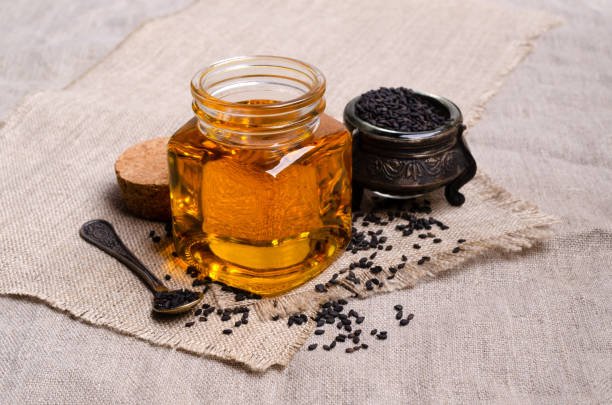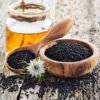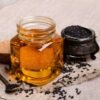Nigella sativa is a small flowering shrub with purple or white-tinged flowers that grows in Eastern Europe, the Middle East, and western Asia.
While it may look unsuspecting, the shrub produces fruits that have tiny black seeds. These black seeds have been used in remedies for thousands of years.
Archaeologists even found black seeds in King Tut’s tomb, emphasizing their importance in history for healing and protection. They’re also used in cooking to add flavour to breads, curries, and pickles. When eaten, the seeds have a bitter flavour that’s often compared to cumin or oregano.
Some additional names for black seed oil include:
- black caraway
- black cumin
- black onion seed
- kalonji
Black seed oil has been shown to have antioxidant properties. These can help relieve inflammation inside the body and on the skin.
Nigella sativa (black seed or black cumin), which belongs to the Ranunculacea family, is an annual herb with many pharmacological properties The use of Nigella sativa seeds and oil in traditional remedies goes back more than 2000 years, and the herb is described as ‘the Melanthion’ by Hippocrates and Discroides . Black seeds and their oil have a long history of folklore usage in the Indian and the Arabian civilizations as food and medicine and have been commonly used as treatment for a variety of health conditions pertaining to the respiratory system, digestive tract, kidney and liver functions, cardiovascular system, and immune system support, as well as for general well-being. Black seed contains many active components, such as thymoquinone , alkaloids (nigellicines and nigelledine), saponins (alpha-hederin), flavonoids, proteins, fatty acids, and many others, that have positive effects in the treatment of patients with different diseases . Thymoquinone is the most abundant constituent in the volatile oil of Black seeds, and most of the herb’s properties are attributed to it.




